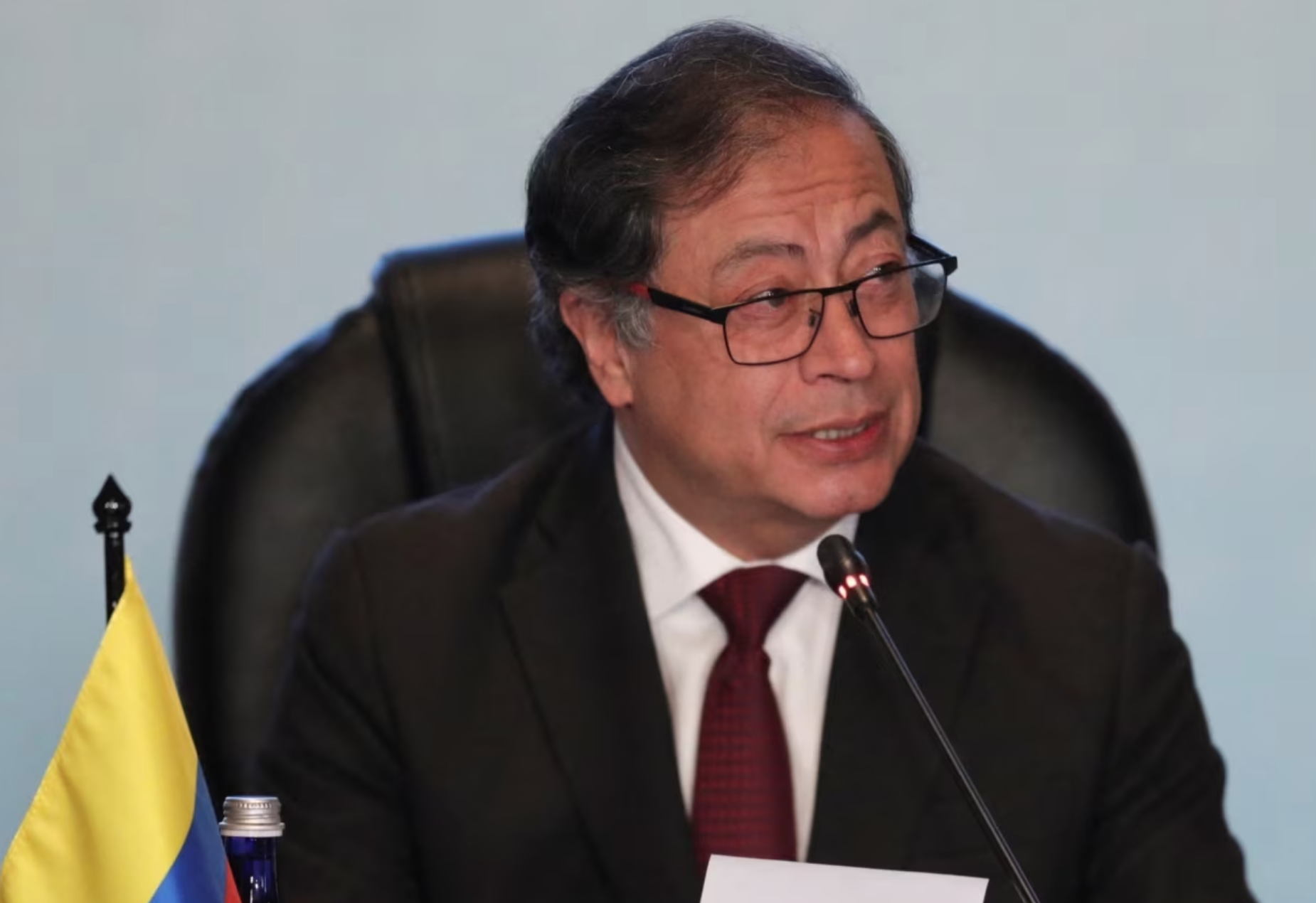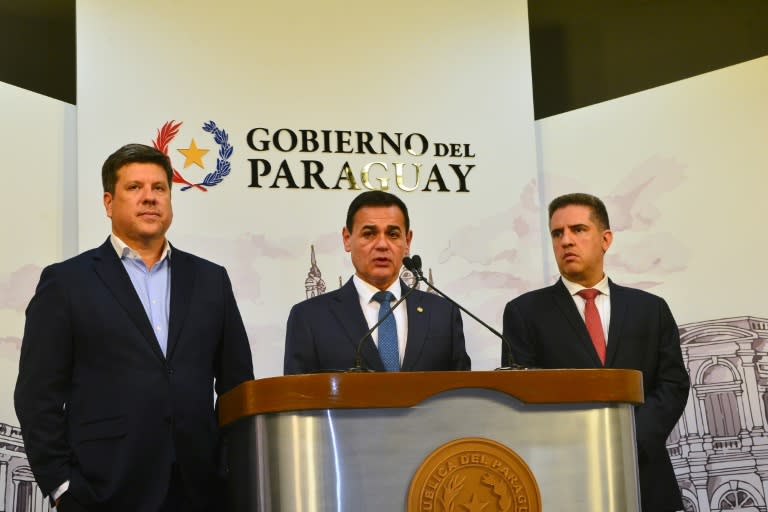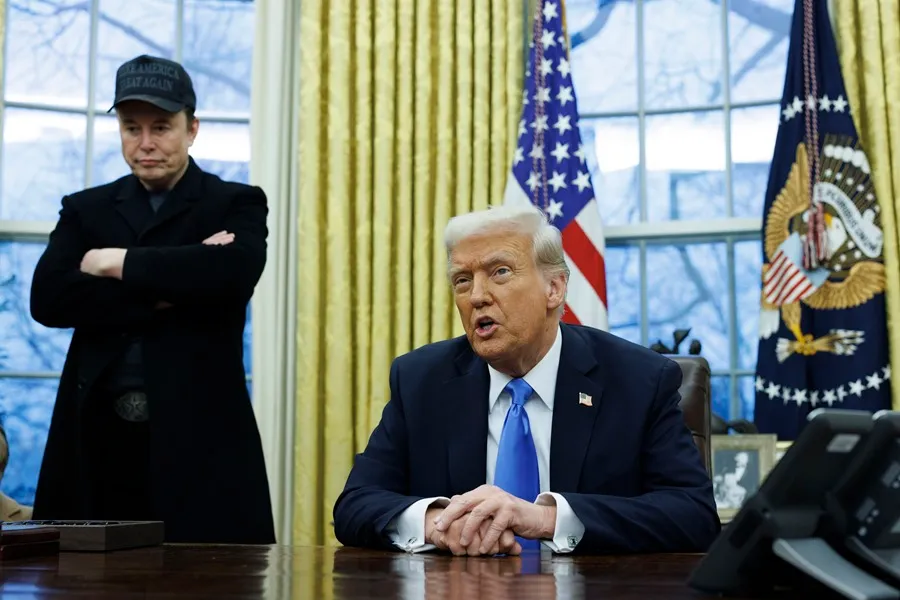International
Petro’s cabinet reshuffle seeks to “put together a coalition” to pass his reforms

April 28 |
The changes in part of the cabinet of the president of Colombia, Gustavo Petro, imply not only the breaking of relations with some political parties that were part of his coalition and working with more “loyal” and closer people, but also that he seeks to open spaces to move forward his government projects, according to analysts consulted by Voice of America.
“Petro is a person who has not changed since we have known him in Colombian politics, I have the impression that he can close with his people, put together a coalition to try to pass his reforms and look for the street to vote him some things as it has already happened in Colombia”, explained the political analyst and columnist of the newspaper El Espectador, Pedro Viveros.
For Theodore Kahn, associate director of Control Risks, the changes offer a more united cabinet with an ideology closer to that of the president. “There is probably going to be an effort to really put forward some reforms and some public policy objectives more aligned with what Petro had put forward in the campaign and some of the banners that he has carried for several years,” Viveros said.
In this sense, Kahn adds, he will have less inconvenience when it comes to “moderating his proposals” and “accepting points of view internally” and, in this way, “achieving the more radical objectives in some areas that he wants to implement”.
The most sensitive changes within Petro’s cabinet are in the Treasury, Health and Agriculture portfolios.
The first one, due to the stability in the markets and the national and international recognition that the outgoing minister, José Antonio Ocampo, represented, not only for being known as one of the most respected economists in the country, but also because he managed to push forward the most ambitious tax reform in the history of Colombia.
Despite his good relationship with the Colombian president, he is not as close as his successor, economist Ricardo Bonilla, current director of the Financiera de Desarrollo Territorial (Findeter), former Secretary of Finance in Bogota, during Petro’s administration, and his advisor on different issues, such as pensions.
Another sensitive issue is the health reform, proposed by the outgoing minister, Carolina Corcho, whom many legislators and political leaders have described as intransigent, which presented inconveniences at the time of advancing this proposal in Congress.
“We are in the process of this very complicated reform… Petro is going to want with this change in health to exercise more control over the administrative process of this project. He does not want to lose control of this process”, said Corcho.
His successor, surgeon Guillermo Alfonso Jaramillo, has more experience in the political arena. He was Secretary of Health of the Mayor’s Office of Bogota and District Secretary between 2013 and 2014. He has also been senator and representative to the chamber, which opens channels in these sectors.
The departure of Agriculture Minister Cecilia López, according to Kahn, is also “interesting”, since “she was a person with a lot of credibility, very technical and was handling a Petro’s flagship proposal that was approved”.
However, her public criticism of the energy transition project in the country and the health reform proposed by Corcho would earn her departure.
This portfolio will be led by lawyer Jhénifer Mojica Flórez, the current director of Ethnic Affairs of the Land Restitution Unit. She was deputy director of the Colombian Commission of Jurists (CCJ) and has been part of several processes with the Association of Arhuaca Authorities of the Sierra Nevada and the Commission for the Clarification of the Truth.
International
Paraguay summons Brazilian ambassador over Itaipú espionage scandal

Paraguay summoned the Brazilian ambassador in Asunción on Tuesday to demand “explanations” and called its own representative in Brasília for consultations following Brazil’s acknowledgment of an espionage operation. The Brazilian government, led by President Luiz Inácio Lula da Silva, attributed the operation to the previous administration.
The surveillance effort aimed to uncover Paraguay’s position in now-suspended negotiations with Brazil regarding the pricing of electricity from the binational Itaipú hydroelectric plant, according to reports in the Brazilian press.
The Brazilian government “categorically denied any involvement in the intelligence operation,” stating in a Foreign Ministry communiqué on Monday that the espionage was carried out under former President Jair Bolsonaro’s administration (2019-2023).
“The operation was authorized by the previous government in June 2022 and was annulled by the interim director of the (state intelligence agency) ABIN on March 27, 2023, as soon as the current administration became aware of it,” Brazil’s government asserted.
Paraguay’s Foreign Minister Rubén Ramírez announced that Brazilian Ambassador José Antonio Marcondes de Carvalho was summoned “to provide detailed explanations” regarding the operation. Additionally, Paraguay recalled its diplomatic representative in Brasília “to report on aspects related to the intelligence activity conducted by Brazil regarding Paraguay’s government affairs.”
International
Elon Musk to step down as government advisor, per Trump insiders

President Donald Trump has informed his inner circle that Elon Musk will be stepping down from his role as a government advisor, according to a report by Politico today.
Citing three individuals close to Trump, Politico states that the president is pleased with Musk’s leadership at the Department of Government Efficiency (DOGE), where he has implemented significant budget cuts. However, both have agreed that it is time for Musk to return to his businesses and support Trump from a different position outside the government.
A senior administration official told Politico that Musk will likely maintain an informal advisory role and continue to be an occasional visitor to the White House. Another source warned that anyone thinking Musk will completely disappear from Trump’s circle is “deluding themselves.”
According to the sources, this transition is expected to coincide with the end of Musk’s tenure as a “special government employee,” a temporary status that exempts him from certain ethics and conflict-of-interest regulations. This 130-day period is set to expire in late May or early June.
International
Milei vows to make Argentina so strong that Falkland Islanders “choose” to join

Argentine President Javier Milei reaffirmed his country’s claim over the Falkland Islands (known as the Islas Malvinas in Argentina) and praised the role of the nation’s armed forces during a ceremony marking the “Veterans and Fallen Soldiers of the Malvinas War Day,” commemorating 43 years since the 1982 conflict with the United Kingdom.
Argentina continues to assert sovereignty over the islands, arguing that Britain unlawfully seized them in 1833.
“If sovereignty over the Malvinas is the issue, we have always made it clear that the most important vote is the one cast with one’s feet. We hope that one day, the Malvinas residents will choose to vote with their feet and join us,” Milei stated.
“That is why we aim to become a global power—so much so that they would prefer to be Argentine, making deterrence or persuasion unnecessary. This is why we have embarked on a path of liberation, working to make Argentina the freest country in the world and once again the nation with the highest GDP per capita on the planet,” he added.
-

 Central America3 days ago
Central America3 days agoU.S. Homeland Security Secretary urges Mexico to strengthen Guatemala border
-

 Central America4 days ago
Central America4 days agoPanama police clarifies that Interpol alert for Martinelli is still pending
-

 Central America3 days ago
Central America3 days agoPanama grants Martinelli 72-hour extension to travel to Nicaragua
-

 International1 day ago
International1 day agoParaguay summons Brazilian ambassador over Itaipú espionage scandal
-

 International3 days ago
International3 days agoTrump urges Putin to reach peace deal
-

 International4 days ago
International4 days agoDeportation flight lands in Venezuela; government denies criminal gang links
-

 Sports1 day ago
Sports1 day agoFilipe Luis debuts as coach in Copa Libertadores with Flamengo
-

 Central America1 day ago
Central America1 day agoGuatemalan police officer killed in mob riots over baby kidnapping
-

 International1 day ago
International1 day agoElon Musk to step down as government advisor, per Trump insiders
-

 Sports1 day ago
Sports1 day agoVenezuela investigates 18 baseball players seeking asylum in Spain
-

 International1 day ago
International1 day agoMilei vows to make Argentina so strong that Falkland Islanders “choose” to join
-

 International1 day ago
International1 day agoICE agent’s arrest of suspect sparks controversy in Boston
-

 International1 day ago
International1 day agoÓscar Arias: Trump’s trade policies are a step backward















